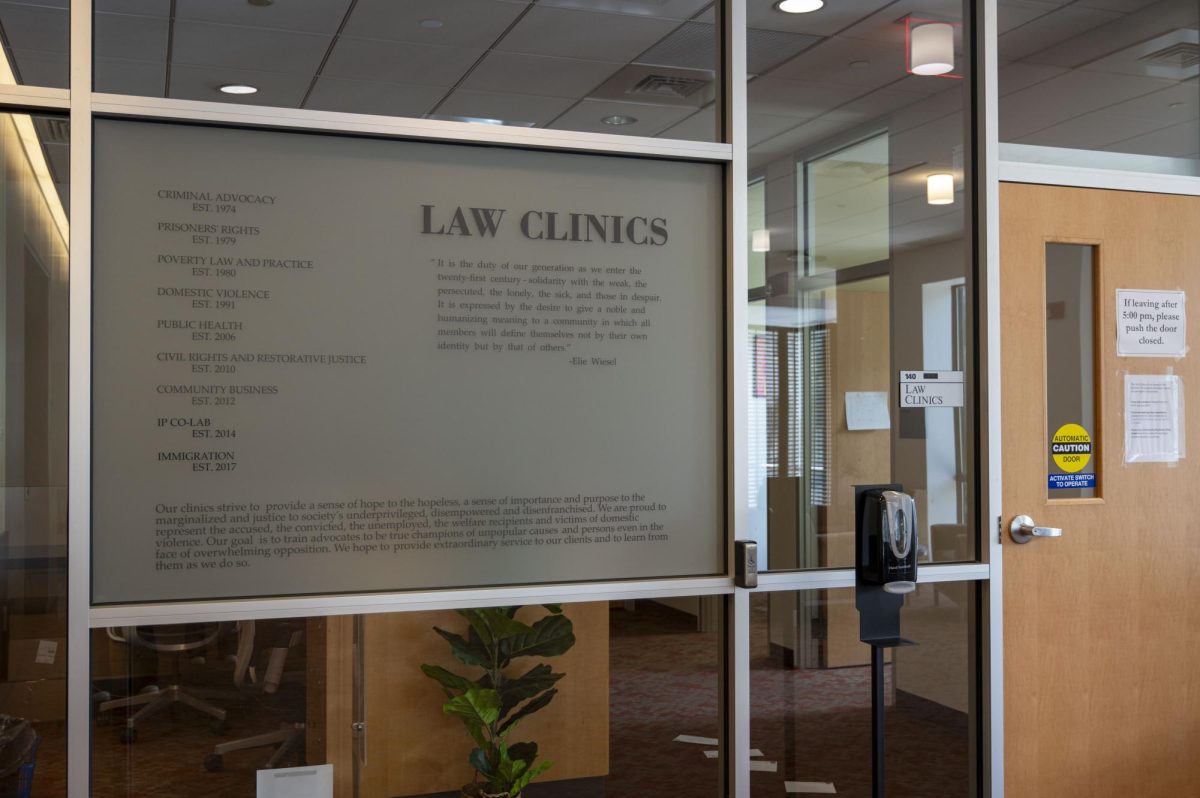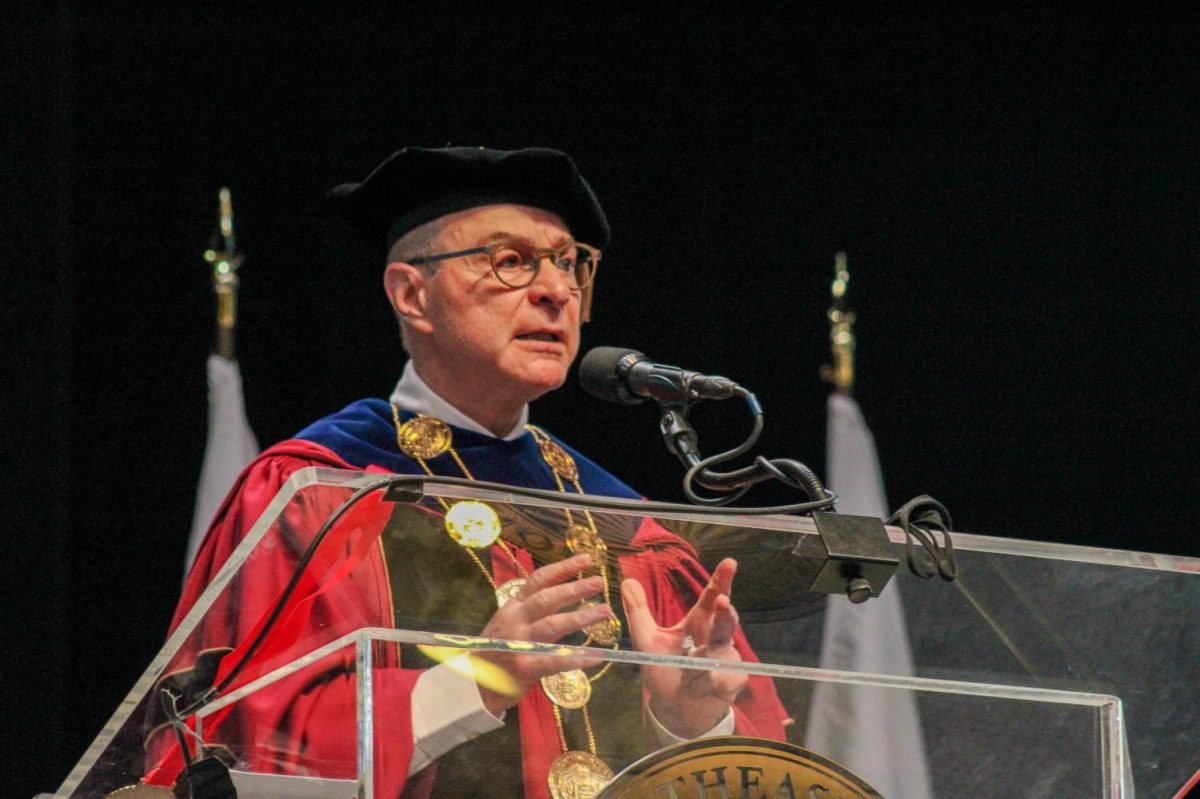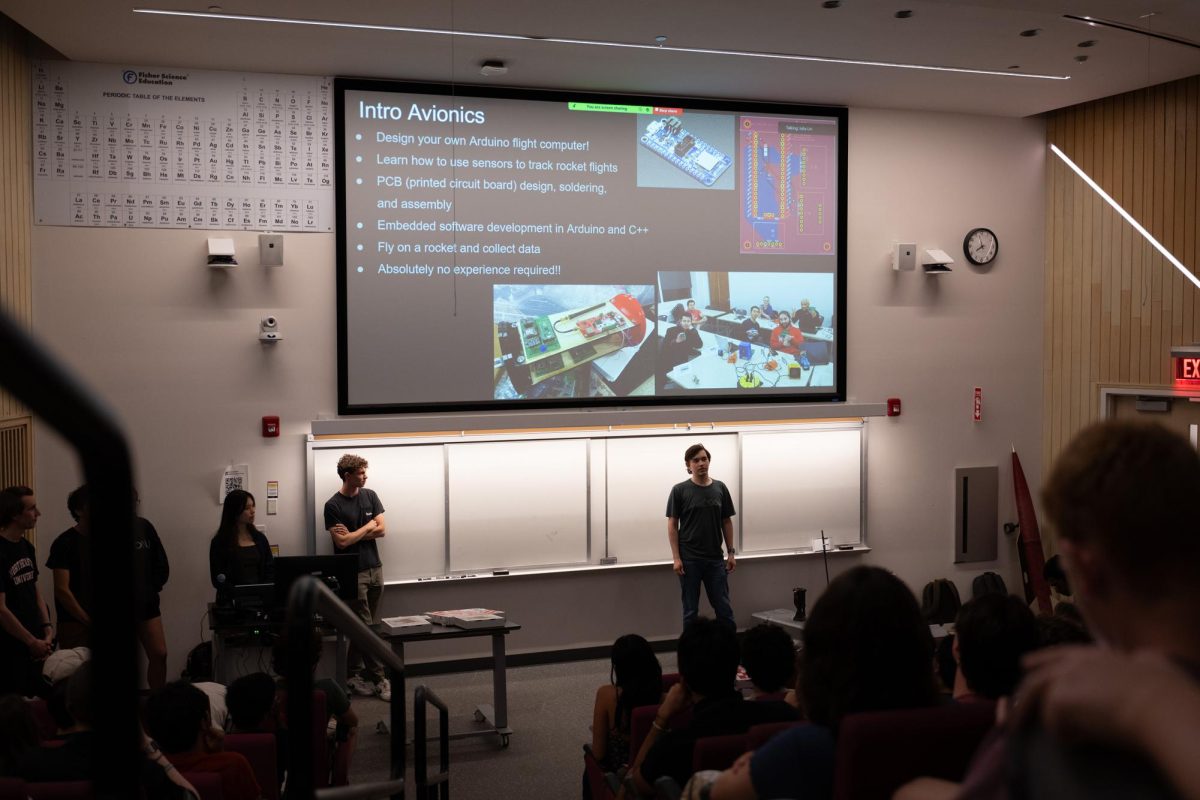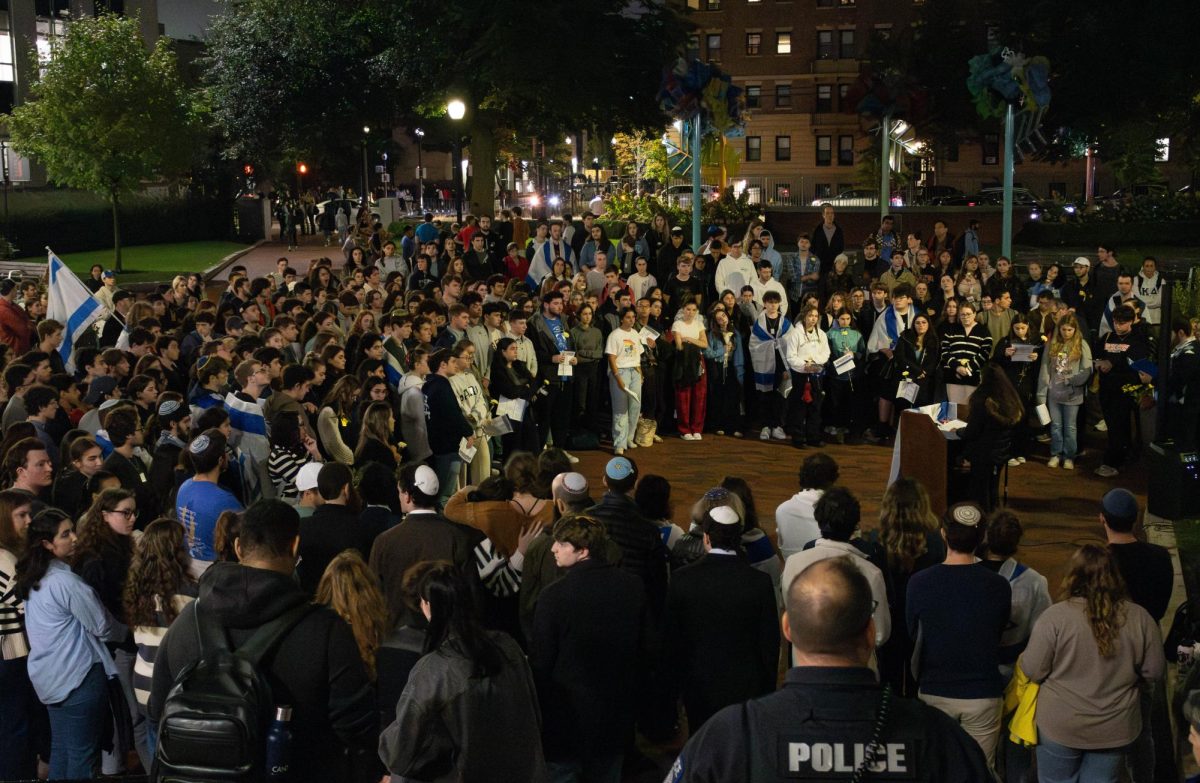Chad Dust stood on the center platform of the Park Street T station and adjusted his microphone headset. On the floor in front of him was a binder full of CDs, a portable stereo, a single speaker and a small plastic container full of coins and dollar bills.
He leaned down, pressed play on the stereo and out of the speaker came the opening notes of a karaoke version of Rick James’ “Super Freak.”
Dust, swaying his body to the music, sang the first lines with a flat voice and a bizarre vibrato that sounded like a cross between Conor Oberst of Bright Eyes and David Byrne of the Talking Heads.
“She’s a super freak, super freak, she’s super freaky,” he warbled as the song reached its chorus.
When he finished, a small crowd of spectators applauded, laughing with pleasure at the 59-year-old’s quirky performance.
“Yeah! He was great,” said one woman, carrying a briefcase and wearing a suit.
Moments later, the Red Line train to Alewife arrived and picked up most of Dust’s audience.
Dust, who said he has performed his karaoke routine for more than two years, is one of many Boston street performers – also known as “buskers” – who until recently were at risk of being drowned out of business by a new Massachusetts Bay Transportation Authority (MBTA) program.
The program was T-Radio, a ’round-the-clock broadcast of pop music, entertainment, news, safety announcements and commercials the MBTA began piping through the PAs in North, South and Airport stations last month.
Thankfully, though, T-Radio is no more.
After spending just two weeks in a trial phase, during which the MBTA received more than 1,000 e-mails criticizing the program, T-Radio was turned off with little public notice.
However, for Dust, his fellow performers, and some community leaders those two weeks were a cause for alarm.
“Down here it’s hard enough working to sound live with the trains coming and going,” Dust said at one point during T-Radio’s brief existence. “I can stop when the trains come, but when the music is being pumped continuously over the PA, it’s just going to be one more loud noise. It’s chaotic. I don’t think I’ll be able to compete with that. People won’t listen.”
Other non-musicians, including former Massachusetts Gov. Michael Dukakis, also worried the program would disrupt the music and performance “scene” that has existed in the city’s subways for years.
“I think one of the best things we did was get musicians into the stations,” Dukakis said. “I think it’s great for them and it’s great for us, as riders. There’s enough noise around. Let’s stick with homegrown musicians who produce some very good music and liven up the stations.”
Dust may not have been exactly the type of musician Dukakis had in mind, but he made it clear he was keen on preserving buskers’ right to perform, regardless of what they’re playing.
“It’s a very good way to add to security and the unique community feeling that you want to have,” said Dukakis, who ordered a similar MBTA radio program shut down in 1989 during his stint as governor. “I would hope they can this thing just as I did.”
Given the opposition of a former governor, you’d think the MBTA would have learned its lesson by now. But history shows the MBTA has been stubborn on projects like T-Radio for decades.
“They’ve tried to install something like this every three or four years since 1982,” said Stephen Baird, who has worked with buskers since the 1970s, in part through Community Arts Advocates, a nonprofit organization he founded.
“What the MBTA doesn’t realize is it isn’t just about [musicians] making money, it’s about self expression,” he said. “In this country it’s called the First Amendment.”
In 1986, Baird helped secure performance spaces on the subway platforms. In 1989, he petitioned the state’s government to shut off the Christmas music the MBTA was piping over the PAs. In 1990 he rejected the MBTA’s attempts to install televisions in the stations. And in 2003, Baird fought bans on horns and electric instruments, and won a legal battle to allow cameras in the stations.
So in October, when T-Radio was announced, Baird mobilized for another battle. But now, luckily, he won’t have to fight it.
T-Radio is gone, at least for the time being. However, Bostonians should remember to remain skeptical next time such a program rears its ugly head. And they should not forget the importance of choosing to listen to performers like Chad Dust – as odd as he and his ilk can be – over Top-40 hits.
– Derek Hawkins can be reached at [email protected].









